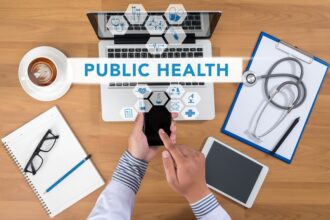October is Health Literacy Month
October is Health Literacy Month
“Health literacy is the currency of success for everything we do in health, wellness and prevention.”
– 17th U.S. Surgeon General, Richard Carmona, MD, MPH, FACS
What is health literacy?
Health literacy refers to an individual’s capacity to obtain, process and understand basic health information and services needed to make appropriate health decisions and follow instructions for treatment. It is a shared responsibility, meaning both the patient and the healthcare provider must communicate in ways that the other can understand.
The American Medical Association has found that poor health literacy is a stronger predictor of a person’s health than age, income, employment status, education level and race.
The problem is widespread: almost 9 out of 10 Americans lack the knowledge and skills needed to manage their health and prevent disease. Understanding the breadth of the gap between an average American’s comprehension of healthcare and the high level at which health information is communicated is a vital first step to improving patient safety and treatment adherence.
It has been estimated that low literate adults increase health care costs by $ 76 billion dollars a year. That figure rivals the amount of ‘fraudulent billing’ and other financial losses to Medicare.
Yet the Patient Protection and Affordability Act completely misses this important fact.
Imagine you are sitting in an exam room feeling sick, stressed and anxious after hours of waiting in the hospital to be seen. You are wearing nothing but a loose fitting hospital gown and have goosebumps because the room is so cold. Finally your in rushes your doctor and within what feels like seconds is preparing to send you on your way. She hands you a piece of paper and says, “Read this and let me know if you have any questions.”
The paper reads:
Your naicisyhp has dednemmocer that you have a ypocsonoloc. Ypocsonoloc is a test for noloc recnac. It sevlovni gnitresni a elbixelf gniweiv epocs into your mutcer. You must drink a laiceps diuqil the thgin erofeb the noitanimaxe to naelc out your noloc.
How did you FEEL reading the passage?
Example:
“Inspect hcae esoh along its eritne length, and ecalper any esoh that is dekcarc, nellows, or swohs signs of noitaroireted”
Can you translate that sentence?
Or what about this one?
“kcehc the egral and rewol rotaidar sesoh rellams retemaid sesoh, ecihw run morf the engine eht llawerif.”
Definitely ‘food’ for the spelling checker
Low illiterate patients experience this phenomenon. Low literate adults often nod in agreement even if they have no idea what they read, or hear.
October is Health Literacy Month
Little known amongst physicians are the presence of literacy scholars, devoted to Health Literacy.
 Peter Morrison, Health Literacy Program Manager
Peter Morrison, Health Literacy Program Manager
This week I was privileged to attend a tweetchat #hchlitts which focused on this topic. The guest was Peter Morrison, BA, Health Literacy Program Manager, Peter is an American Medical Association certified vendor-consultant providing communication assessments for healthcare agencies, the unique AMA vendor-consultant for this service in Texas and one of ten nation-wide. By developing health literacy interventions in collaboration with the end user (low literate patients and English Language learners) and national leaders. Peter has developed a suite of health literacy services with proven efficacy throughout the state of Texas health literacy services.
His leadership in the field of health literacy is evident in several instances, including a collaboration request by Joint Commission on a nation-wide hospital assessment project, selection as one of ten nation-wide American Medical Association consultants for the Communication Climate Assessment Toolkit (CCAT), featured health literacy expert in articles published in Patient Education Management, Community Literacy Journal, and Patient Education and Counseling, as well as presentations at national conferences, including the 2012 Health Literacy Leadership Institute. He is also a certified adult literacy instructor, community health Promoter, and has extensive experience in health literacy training design and facilitation.
Most states have their own Health Literacy Projects: This page offers a Portal to these agencies
October is Health Literacy Month
Information provided by:









